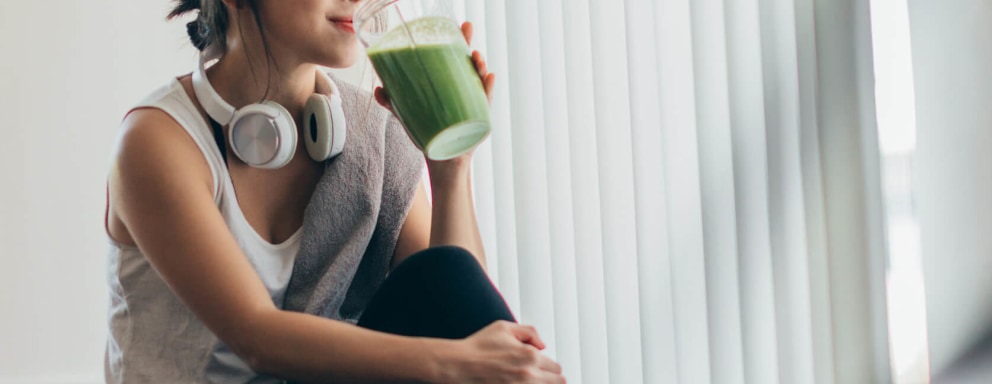Nurses Recommend These Self-Care Products for Other Nurses

Our team independently chose these products. If you click on a product link, we may earn a commission. Learn more.
Nursing careers can be physically and mentally stressful. Nurses are constantly on their feet and handle tremendous responsibilities.
As a nurse, you’re a giver, so it can be hard to take care of yourself while taking care of others. Self-care for nurses is crucial, however. It allows practitioners to refresh and effectively care for patients.
We asked experienced nurses to recommend some of the best self-care products for nurses. Here are 12 of their favorite products and activities.
12 Self-Care Recommendations From Nurses, for Nurses
These nurse self-care recommendations come from nurses like you. They are designed to help you recharge and stay well physically, mentally, emotionally, and spiritually.

Resistance Bands
Resistance bands are long elastic straps that are used to build muscle strength through resistance training. Resistance bands are ideal self-care products for nurses who don’t have time to go to the gym. You can put them in your pocket or purse and perform as many or as few reps as you want.

Weighted Microwaveable Neck and Shoulder Wrap
These microwaveable neck and shoulder wraps are weighted to provide soothing warmth and relax tense muscles in your neck and shoulders.
Bedside nursing can be particularly hard on your back and shoulders, as can working at a computer. Many people store tension in their shoulders, neck, and back.
“Using this really helps with tension and stress aches that I hold in my neck and upper back,” says Jenna Liphart Rhoads, a nurse and nurse educator.

Regular Journaling
Nurses sometimes have to make difficult decisions. They must remain professional under extremely difficult circumstances without letting stress get the best of them. Journaling as part of nurse self-care helps process thoughts and emotions in a healthy way.
Online or on paper, journaling can help you organize your thoughts, reflect on successes and setbacks, and unwind. Expressive writing can improve your physical and mental health, according to an analysis of 13 separate studies.
“Writing is a great way to relax, get thoughts out, reflect, and do some self-care! It is a cathartic, therapeutic avenue for self-care and stress management,” recommends Susan J. Farese, MSN, RN.

Micellar Cleanser and Makeup Remover
A lightly scented skin cleanser that removes dirt and makeup is a must-have for nurses on the go. A skin care routine can be soothing and help you feel fresh, ready to take on the next part of your day.
Micellar cleanser is an ideal self-care product for nurses with sensitive skin. Joelle Jean, a board-certified family nurse practitioner, suggests the Trader Joe’s brand, saying, “It’s inexpensive, smells great, and works well on my dry skin.”

Walking Routines in Nature
Connecting with nature is a simple, accessible way to care for a stressed body and mind. Walking releases endorphins, hormones that promote relaxation and a sense of well-being. There are also mental health benefits to spending time in nature.
Walking in a park or on a wooded trail can soothe the mind and improve mental health. Nature lowers stress by forcing us to slow down, while improving mood and productivity.
After planning a walking routine, Farese takes it a step further by bringing along a camera.
She says, “Getting out in nature and bringing a camera, or your phone, can be a great way to de-stress and be mindful.”

Regular Exercise
Exercise is another natural antidote to stress. Studies show that exercise improves mood and reduces anxiety. Additionally, maintaining a healthy weight, muscle strength, and flexibility helps your joints and makes physical tasks easier.
“Consistent exercise will not only keep you healthy…but it helps relieve stress and anxiety,” Rhoads comments.

Aquaphor in the Tube
Aquaphor is a moisturizing lotion for all skin types, but especially dry skin. Aside from being uncomfortable, dry skin is more prone to cracking. Cracking can lead to more painful conditions or infections, making lotion one of the best self-care products for nurses.
“Aquaphor is somewhat expensive, but it works well on dry skin. It’s not too oily or greasy,” Jean says, noting that Aquaphor is also great for diaper rash in infants.
Purchase Aquaphor in the tube instead of the tub to avoid cross contamination.

Face Wash With Tea Tree Oil
Finding a gentle face wash is crucial for busy nurses who want to prioritize self-care. Tea tree oil is a natural antifungal and antibiotic, ideal for healthcare professionals.
Jean also recommends the Trader Joe’s version for nurses as “light, inexpensive, and has tea tree oil which is great for the skin!”

Comfortable Shoes or Inserts
Nurses are constantly on their feet on hard hospital floors. Comfortable shoes that give support and protection are a must for busy nurses. Orthotics are also great aids for nurses to supplement their work shoes.
Comfortable shoes with good support help reduce pain and prevent chronic foot problems down the road. “Supportive, comfortable shoes are often overlooked by younger nurses, but they are an important self-care product,” Rhoads advises.

Mindfulness Meditation
Meditation is a global practice that promotes mental health and reduces stress. It can take any secular, religious, or spiritual form, including meditative prayer, mindfulness meditation, or meditative breathing.
Studies found that meditating for 40 minutes a day over two months increases brain volume in areas related to empathy and compassion, learning, and stress management.
Meditation can help you remain calm during stressful situations, restore a sense of inner balance and peace, and respond to emotional trauma in a healthy way.
Apps like Calm or Headspace offer guided meditations and a quick tranquility break during hectic times.

Exploring the Arts
Studies show that engagement in the arts, no matter your skill level, is great for your mind and emotions. According to research by Daisy Fancourt, Ph.D., participating in the arts releases dopamine, which helps build cognitive flexibility.
Art and music can help you channel your emotions into a creative activity, keeping your mind and imagination active and healthy. Even if you don’t think you are “artistic,” you can learn to create art or enjoy the arts.

Yoga
With its emphasis on slow movements and stretching, yoga is a natural stress buster and an excellent form of self-care for nurses. It’s growing in popularity, too. From 2012-17, the number of adults practicing yoga grew from 9.5% to 14.3%, and more than 90% of those who practice yoga do so for wellness reasons.
Beyond its mental benefits, yoga builds strength and flexibility. Like resistance bands, you can do yoga at your desk or in a break room without additional equipment beyond a mat.
Meet Our Contributors

Jenna Liphart Rhoads is a nurse, educator, and writer who has earned a BSN, an MS, and a Ph.D. in nursing education. She speaks on behalf of Nursetogether.com, a website providing trustworthy information on nursing and healthcare education.

Susan Farese has been a licensed registered nurse since 1978 and holds master’s and bachelor’s degrees in nursing. She is an entrepreneur, author/poet, filmmaker, actor, mentor, and owner of SJF Communications, a PR/communications company in San Diego. She just published the second edition of her book, “Poetic Expressions in Nursing: Sharing the Caring.” It is available in paperback, e-book, and audiobook versions.

Joelle Jean has been a nurse for more than 10 years and family nurse practitioner for over three years. She has a background in pediatric emergency room, labor and delivery, and primary care medicine. Her passion for the nursing profession and writing led her to her current role as a senior writer for NurseJournal.
You might be interested in

Self-Care for Nurses
Explore the importance of self-care for nurses and ways in which they can promote physical, psychological, and social well-being.

Special Discounts and Deals for Nurses
Check out this list of special deals for nurses, including nurse discounts, special offers, and freebies for nurses.

How To Get Better Sleep as a Night Shift Nurse
If you are a night shift nurse, you may find it difficult to get restful sleep. Nurses can use this page to discover sleep tips for getting through the night shift.